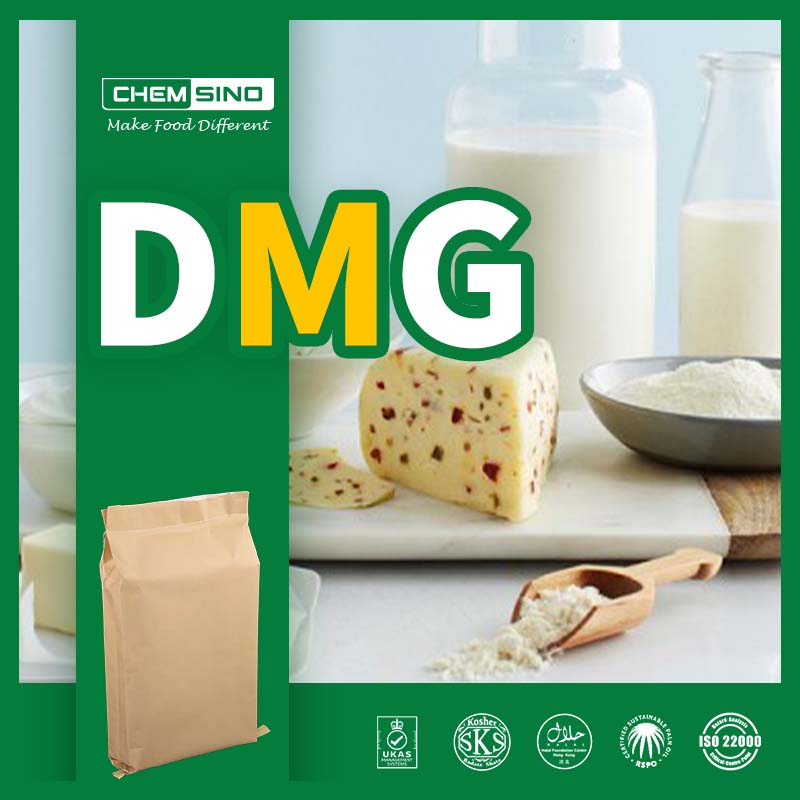Emulsifier In Food: Everything You Need to Know for Food Nerds
Everything about the Function of an Emulsifier in Food and Its Significance in Modern Cuisine
Emulsifiers are essential in contemporary food, assisting in the blend of immiscible fluids like oil and water. Their capability to maintain blends enhances the structure and taste of different food products. From salad dressings to baked products, emulsifiers play a significant function in both commercial and home food preparation. The science behind their feature and the future developments in their usage remain much less explored. What much more could be uncovered concerning these important cooking agents?
Comprehending Emulsification: The Science Behind the Process
Emulsification may appear like a basic culinary strategy, it involves complicated clinical principles that are necessary for creating steady combinations of immiscible liquids, such as oil and water. At the heart of this process exists the concept of surface stress, which prevents the 2 liquids from blending naturally. Emulsifiers, materials that minimize surface stress, play an important role in facilitating the mix of these liquids. They possess both hydrophilic (water-attracting) and hydrophobic (water-repelling) properties, permitting them to anchor themselves at the interface in between oil and water.
When an emulsifier is introduced and the blend is agitated, it develops a protective barrier around distributed beads of one fluid within the various other, stabilizing the mixture. This activity not just boosts appearance and mouthfeel in foodstuff yet additionally adds to their aesthetic allure. Emulsifier In Food. Recognizing the scientific research behind emulsification is basic in modern-day food, enabling chefs to produce a range of sauces, dressings, and emulsified recipes
Usual Kinds Of Emulsifiers Made Use Of in Food
Emulsifiers are vital active ingredients in the food sector, playing an essential role in supporting combinations of oil and water. Various sorts of emulsifiers are typically utilized, each with special buildings matched for various applications. Lecithin, obtained from soybeans or egg yolks, is one of one of the most preferred natural emulsifiers, frequently located in chocolates and dressings. Mono- and diglycerides, which are acquired from glycerol and fatty acids, are extensively utilized in baked goods and margarine to enhance texture and expand life span. An additional typical emulsifier is polysorbate 80, favored for its capacity to improve the consistency of gelato and sauces. Furthermore, xanthan gum and guar gum act as thickening representatives that likewise add to emulsification in gluten-free products. These emulsifiers are essential to creating a steady, tasty product in modern-day food formulas, guaranteeing a pleasant sensory experience for customers.
The Function of Emulsifiers in Various Food Products
A range of food count on emulsifiers to accomplish desired structures and security. These substances help with the blending of immiscible fluids, such as oil and water, which is vital in several processed foods. For circumstances, in salad dressings, emulsifiers aid preserve a regular mix, preventing separation and improving rack life. In baked goods, they contribute to a consistent crumb structure and moisture retention, enhancing general high quality.
Emulsifiers also play a significant function in dairy items, such as gelato and yogurt, where they stabilize fat blobs, guaranteeing a smooth mouthfeel. In addition, in condiments and sauces, they enhance viscosity and enhance spreadability. This capability is vital in the production of chocolates, margarine, and mayonnaise, where a natural item is necessary. In general, making use of emulsifiers in various food products is indispensable to modern-day food production, improving stability and consistency throughout a large range of products.
How Emulsifiers Enhance Texture and Flavor

When included into foodstuff, emulsifiers considerably boost both appearance and flavor, creating an even more delightful consuming experience. These compounds facilitate the mixing of ingredients that commonly do not mix well, such as oil and water, resulting in a smoother, creamier uniformity. This not only improves mouthfeel yet likewise permits flavors to spread uniformly throughout the item, magnifying the overall preference.

Emulsifiers in Home Food Preparation: Tips and Techniques
Just how can home chefs effectively utilize emulsifiers to improve their meals? Emulsifiers play an important function in accomplishing preferable structures and flavors in read the article homemade recipes. Making use of egg yolks in mayo or hollandaise sauce enables for a stable emulsion, integrating oil and water efficiently. Home cooks can additionally experiment with mustard, which serves as an emulsifier in vinaigrettes, making certain a smooth consistency.
In cooking, including lecithin, found in egg yolks or soy, can enhance dough security and moisture retention. In addition, using commercial emulsifiers like xanthan gum or guar gum can aid enlarge sauces and dressings while preserving a velvety mouthfeel.
When creating ice lotions or whipped toppings, emulsifiers can prevent ice crystal development, leading to a smoother texture. By understanding these methods, home cooks can substantially elevate their cooking developments, providing regular and pleasurable dishes that display the power of emulsification.
The Future of Emulsifiers in Culinary Development
As the cooking world remains to develop, the duty of emulsifiers is poised to come to be diverse and progressively innovative. Advances in food scientific research are causing the development of brand-new emulsifying representatives stemmed from natural sources, which satisfy health-conscious consumers and improve the sensory top qualities of dishes. Innovations such as plant-based emulsifiers are getting grip, allowing chefs to develop vegan and allergen-free choices without endangering texture or taste.
In addition, making use of emulsifiers in molecular gastronomy is expanding, allowing cooks to try out one-of-a-kind textures and discussions that mesmerize restaurants. As sustainability becomes a top priority, the future may see a shift towards environment-friendly emulsifiers that reduce environmental effect.
Inevitably, emulsifiers will remain to play an essential role in cooking innovation, connecting the void between tradition and modernity, and permitting cooks to press the borders of creativity in their kitchen areas.
Often Asked Concerns

Are Emulsifiers Safe for People With Allergic reactions?
Emulsifiers can be secure for individuals with allergies, relying on their certain sensitivities. However, certain emulsifiers, stemmed from allergenic sources like soy or eggs, may cause responses, necessitating mindful component scrutiny and consultation with medical care experts.
Just How Do Emulsifiers Affect Food Life Span?
Emulsifiers improve food rack life by stabilizing combinations, stopping separation, and minimizing microbial growth. This security helps preserve official site appearance and flavor with time, allowing items to remain attractive and safe for usage much longer than without emulsifiers.
Can Emulsifiers Be Derived From Natural Resources?
Yes, emulsifiers can be stemmed from all-natural resources such as plants, eggs, and dairy items (Emulsifier In Food). These natural emulsifiers assist support combinations, improving appearance and consistency in various food applications while being favored for health-conscious customers
What Are the Environmental Effects of Emulsifier Manufacturing?
The environmental effects of emulsifier manufacturing consist of source depletion, habitat damage, and air pollution from synthetic processes. Natural emulsifier sourcing can alleviate some effects, however on the whole, industrial practices still position substantial ecological challenges to ecosystems worldwide.
:max_bytes(150000):strip_icc()/salad-dressings-2500-57ad12295f9b58b5c2484d0a.jpg)
Are There Vegan Emulsifiers Available on the market?
Yes, there are several vegan emulsifiers available in the market, such as lecithin stemmed from soy or sunflower, guar gum, and xanthan gum tissue. These options accommodate plant-based diets without endangering emulsifying properties.
Emulsifiers are essential ingredients in the food sector, playing a critical duty in maintaining blends of oil and water. A range of food products rely on emulsifiers to achieve wanted structures and stability. When incorporated right into food products, emulsifiers significantly enhance both texture and flavor, developing a more pleasurable eating experience. In addition, emulsifiers can support air pockets in whipped products like creams and mousses, leading to a light and airy texture. Emulsifiers improve food shelf life by maintaining blends, stopping separation, and minimizing microbial growth.